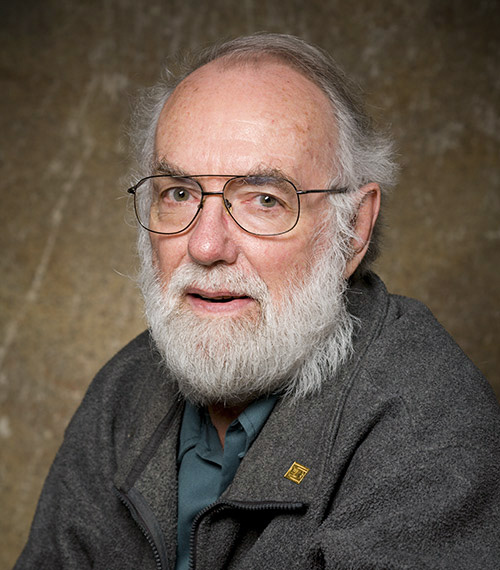The 2011 BBVA Foundation Frontiers of Knowledge Award in Ecology and Conservation Biology is granted to Professor Daniel H. Janzen of the University of Pennsylvania, United States, for his pioneering work in tropical ecology and the conservation of tropical ecosystems.
Daniel H. Janzen is a supreme example of the complete ecological scientist, combining expertise in natural history with scientific rigor and innovative thinking. He has applied both of these to the practical question of biodiversity conservation, and in the process shaped tropical ecology as we know it today. His studies focused on Costa Rica, but ranged from Mexico to Nigeria, Uganda, Malaysia, and northern Australia.
His pioneering work, starting in the 1960s, on the interactions and co-evolution of animals and plants, transformed tropical biology from a mainly descriptive field to a rigorous, hypothesis-driven scientific discipline, and opened doors to multiple new avenues of inquiry in topics such as plant-herbivore interactions and seed dispersal. In the 1980s, he became one of the pioneers of the science of restoration ecology, which aims to bring back habitats and ecosystems damaged through overuse by humans.
His work in this area focused on the dry forests of Costa Rica, where he has guided the restoration and conservation of thousands of hectares of a formerly degraded landscape. He invented the concept of “parataxonomists” (persons trained to assist professional biologists) to catalogue all species at a given site, and then led the systematic and large-scale application of “DNA barcoding” (a simple molecular technique to identify species that facilitates biodiversity inventories). Both advances revolutionized the way we catalogue and monitor biodiversity.
Professor Janzen has served as a role model and inspiration for several generations of ecologists and conservation biologists, including his role in developing the Organization for Tropical Studies, which has trained thousands of students in tropical biology. He was a key figure in the design and execution of model field experiments and case studies in tropical ecology going back to the late 1960s, with a special emphasis on mutualisms (beneficial interactions between species). His key contributions stem from solid empirical work in tropical areas to develop new approaches in ecology and conservation biology.
Professor Janzen pioneered long-term studies of large landscapes, with his research forming the basis for establishment of the Área de Conservación Guanacaste (ACG). It started as 10,000 hectares of degraded land and was expanded to 130,000 hectares of a restored, functional forest ecosystem. Now a UNESCO World Heritage Site, ACG is the working model for the entire Costa Rican national park system. It is internationally recognized as one of the best tropical examples of “conservation through biodiversity development,” and is also the largest forest restoration project anywhere in the world. The ACG is a model of how to conserve a large complex tropical ecosystem and has been inspirational to tropical biology and conservation initiatives throughout the world.
Additional notable contributions include: landmark studies of plant-animal interactions (e.g., acacia tree-ant mutualisms, pollination, seed dispersal); studies in chemical ecology (e.g., secondary metabolites in plants as defense compounds; role of anti-microbial compounds produced by fungi); the role of biotic interactions in structuring and generating tropical biodiversity; and an extensive study of caterpillar-parasitoid interactions.
The jury recognizes that Professor Daniel H. Janzen is ranked among the world’s most outstanding ecologists and conservation biologists. He is considered a founder of modern terrestrial tropical ecology and continues to lead an innovative research program on conservation of tropical biodiversity through its integration with local cultures.


